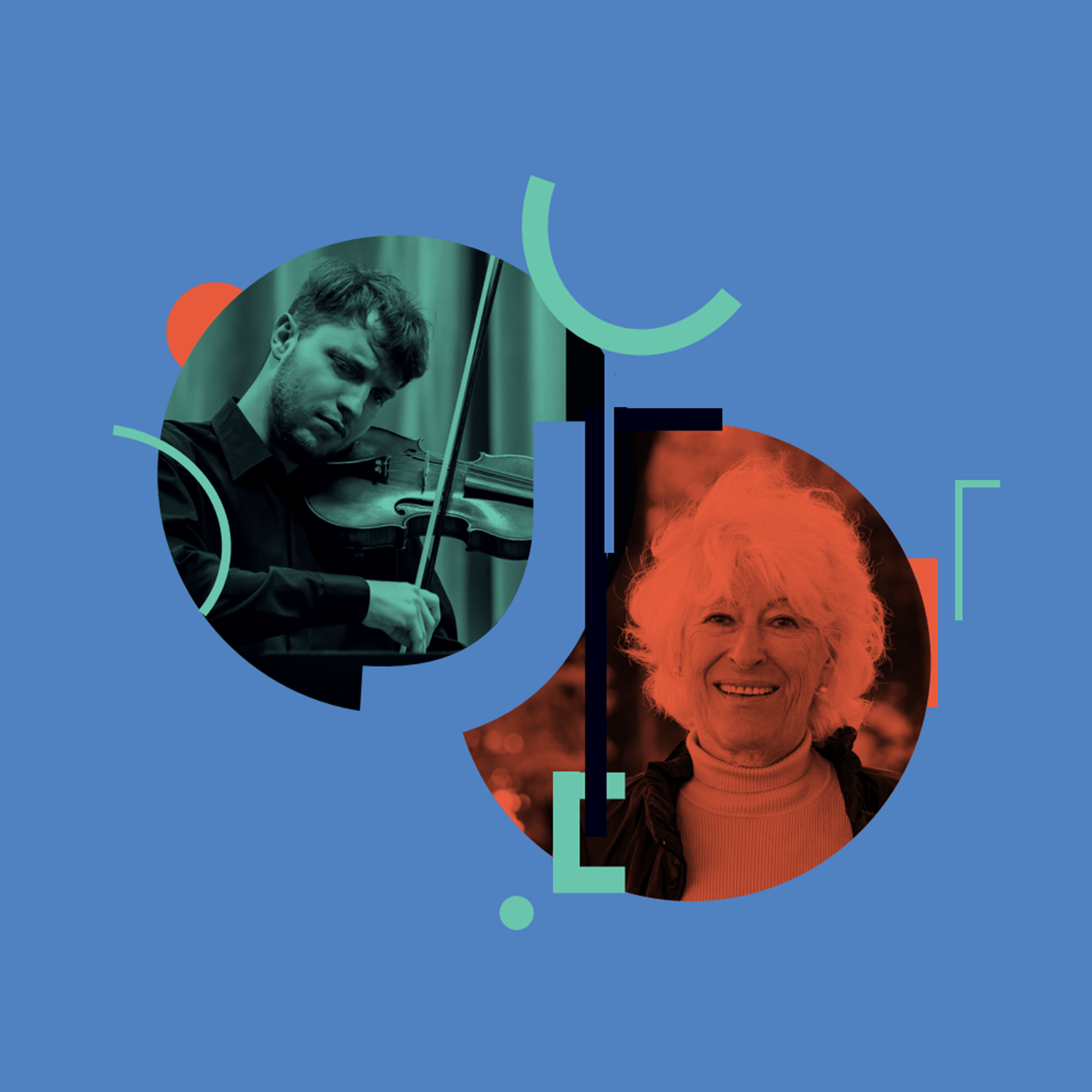Download Mona Levin’s lecture.


Download Mona Levin’s lecture.
Mona Levin lecture
Sveinung Bjelland piano
Laurens Weinhold violin
Adam Siebers violin
Tomasz Rosiński viola
Mateusz Błaszczak cello
Issay Dobrowen Märchen for violin and piano, Op. 16 [8’]
lecture by Mona Levin* [40′]
intermission
Issay Dobrowen Mélodie Hébraïque for violin and piano, Op. 12 [6’]
Issay Dobrowen Élegie for piano solo [5’]
Ernest Bloch Nigun from Baal Schem for violin and piano, B. 47 No. 2 [7’]
Paul Kletzki Allegro scherzoso (mov. II) from String Trio, Op. 29 (excerpts) [8’]
Mieczysław Weinberg Allegro con moto and Moderato assai (mov. I, III) from String Trio, Op. 48 [12’]
* Lecture will be held in English; Polish translation will be available to the audience at the event.
The next part of the two-year Interactions-Integrations project carried out by Sinfonia Varsovia and K&M FEST in Stavanger 2022-23 has been scheduled for the weekend of 10–12 March 2023 in Warsaw. After Sinfonia Varsovia's October visit to Stavanger, the project returns to Warsaw to explore refugee stories.
The highlight of the weekend is an event entitled In Exile – Wartime Stories of Norwegian and Polish Composers, featuring a chamber music concert preceded by a lecture. Moreover, young refugees are invited to participate in the weekend comics workshop Express Yourself Through Drawing run by Lebanese-Norwegian illustrator, visual artist, and animator Jeanine El Khawand. The weekend will open with a chamber music concert performed together by Norwegian and Sinfonia Varsovia musicians for Ukrainian refugees. Event partners include: POLIN Museum of the History of Polish Jews, Teatr Powszechny im. Zygmunta Hübnera, and Warsaw Family Assistance Center.
The heroine of the evening of words and music held on 12 March is Mona Levin (born 1939). This renowned Norwegian journalist, writer, actress, and theatre critic has been associated with the leading Norwegian newspaper Aftenposten since 1973. She was the editor of several Norwegian musical magazines, such as “Listen to Norway” (1992–2001) and “Resonans” (1997–2000) published by the Oslo Philharmonic. She is the author of several biographies of key figures of Norwegian cultural and social life. The autobiography of her father Robert (ghostwritten by Levin herself), an acclaimed pianist and animator of musical life in post-war Norway, as well as the biography of her mother Solveig (born 1914), who lives to this day, have a special place in Levin’s work. Drawing upon her mother's life, she presented the panoramic history of Norwegian Jewish families from the late 19th century to the present. Mona Levin's family suffered persecution after the Nazi occupation of Norway during World War II. Motivated by her personal experience, Mona Levin became dedicated to cultivating the memory of the harms the Jewish community suffered in Norway, making her one of the most important advocates for the cause in the country. Her artistic interests and family history directed her attention to the wartime stories of Norwegian Jewish musicians.
In a lecture entitled Dramatic Lives: Norwegian Jewish Musicians, Mona Levin introduces three prominent representatives of Norwegian musical life. The most successful and internationally recognized figure is the conductor and composer Issay Dobrowen (1891–1953), who led the Oslo Philharmonic Orchestra between 1928 and 1931 and the Gothenburg Symphony Orchestra during World War II. The other figures are violinist Ernst Glaser (1904–79), who was a long-time concertmaster of the Oslo Philharmonic Orchestra and Mona Levin's father, Robert Levin (1912–96), who was a renowned pianist, chamber musician, and important animator of musical life in Norway. The lecture will explore both their pre- and post-war artistic biographies in the context of the events in Europe.
The second part of the evening will feature guest artists from Norway – pianist Sveinung Bjelland and violinist Laurens Weinhold, who will perform three miniatures from the recently rediscovered legacy of composer Issay Dobrowen, as well as the famous prayer Nigun by Ernest Bloch (1880–1959), one of the most emblematic composers referring to the Hebrew heritage. The program will be complemented by selected movements from string trios by two Polish composers: in addition to the increasingly popular work of Weinberg (1919–96), we will hear Paweł Klecki's (1900–73) rarely performed String Trio Op. 29. Born in Łódź, the artist developed an exceptional career as a conductor and composer, working closely with Wilhelm Furtwängler and the Berlin Philharmonic until Hitler took power in 1933. His trio from 1934 can be seen as a musical testament to a tumultuous moment in the composer's life. Weinberg’s and Klecki’s trios will be performed by Sinfonia Varsovia's chamber musicians, including Adam Siebers (violin), Tomasz Rosiński (viola), and Mateusz Błaszczak (cello).
Mona Levin (b. 1939) has been associated with the leading Norwegian newspaper, Aftenposten, for 50 years, the last 25 as a freelance theatre critic. Her main fields are classical music and the theatre. She studied literature and theatre in the US and at the Norwegian Academy of Theatre. Over the years she has published several biographies on musicians and actors, as well as that of adventurers, a Red Cross General Director and even cookbooks. Her last volume (Mors historie. En familiesaga 2015) told the story of her mother’s family, while she ghosted the life story of her father (Med livet i hendene 1983). She was editor of the Klassisk Musikkmagasin for 25 years and is still editing the digital version, Klassiskmusikk.com. For nine years she edited Listen to Norway, an English language magazine on Norwegian music which was published internationally, and she was editor of programs at The Norwegian Opera for eight years. Mona Levin often contributes as lecturer and social commentator. She has won the Norwegian Critics' Association’s “Critic of the Year” prize (Olav Dalgards kritikarpris 2016), and she has received the language prize “The Golden Pen” (Gullpennen 1988).